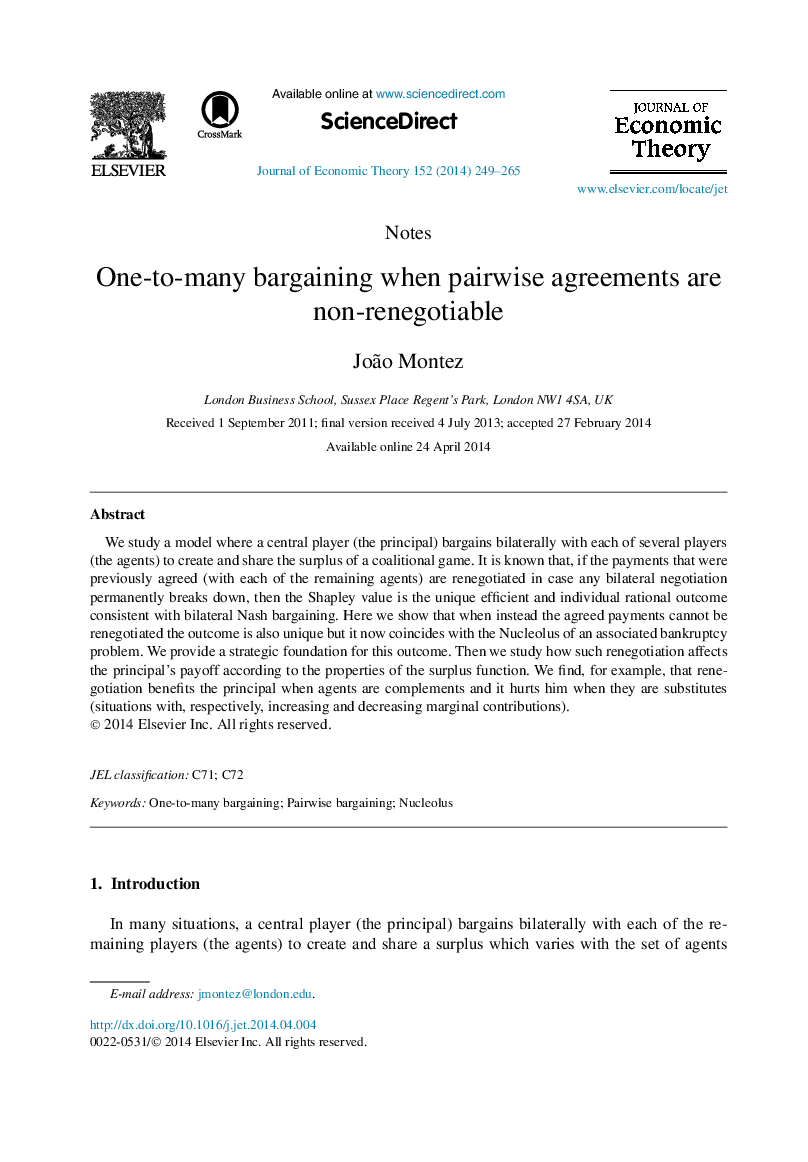| Article ID | Journal | Published Year | Pages | File Type |
|---|---|---|---|---|
| 7359862 | Journal of Economic Theory | 2014 | 17 Pages |
Abstract
We study a model where a central player (the principal) bargains bilaterally with each of several players (the agents) to create and share the surplus of a coalitional game. It is known that, if the payments that were previously agreed (with each of the remaining agents) are renegotiated in case any bilateral negotiation permanently breaks down, then the Shapley value is the unique efficient and individual rational outcome consistent with bilateral Nash bargaining. Here we show that when instead the agreed payments cannot be renegotiated the outcome is also unique but it now coincides with the Nucleolus of an associated bankruptcy problem. We provide a strategic foundation for this outcome. Then we study how such renegotiation affects the principal's payoff according to the properties of the surplus function. We find, for example, that renegotiation benefits the principal when agents are complements and it hurts him when they are substitutes (situations with, respectively, increasing and decreasing marginal contributions).
Related Topics
Social Sciences and Humanities
Economics, Econometrics and Finance
Economics and Econometrics
Authors
João Montez,
